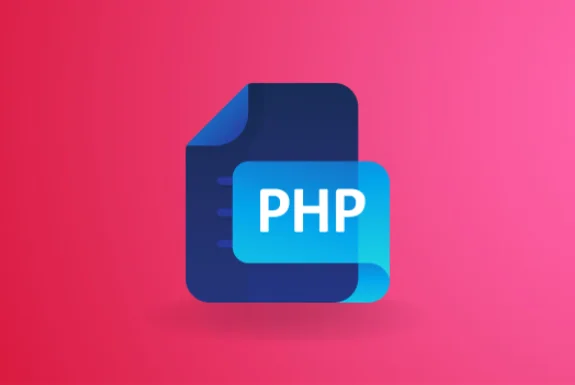Description
Introduction
NuSphere PhpED is a powerful integrated development environment (IDE) tailored for PHP developers. It provides a comprehensive suite of tools that enhance PHP development, enabling developers to write efficient, maintainable, and scalable PHP applications. Building Robust PHP Applications with NuSphere PhpED: Tools and Techniques is a course designed to help you master PhpED’s advanced features, including debugging, code optimization, and integration with databases and web technologies. Whether you’re building small applications or large-scale projects, PhpED equips you with the tools necessary to improve the quality and performance of your PHP code.
In this course, you will learn to harness PhpED’s robust features, including debugging, version control, database management, and web services integration. You’ll gain hands-on experience in building high-performance PHP applications, optimize your workflow, and develop maintainable code using best practices and industry-standard techniques.
Prerequisites
- Basic knowledge of PHP programming and web development concepts.
- Familiarity with version control systems (Git, SVN).
- A basic understanding of databases (MySQL, PostgreSQL) is helpful but not mandatory.
- Prior experience with any IDE is beneficial but not required.
Table of Contents
- Introduction to NuSphere PhpED
1.1 What is NuSphere PhpED?
1.2 Installing and Setting Up PhpED
1.3 Navigating the PhpED User Interface
1.4 Configuring PhpED for Optimal Performance - PHP Development in PhpED
2.1 Creating and Managing PHP Projects
2.2 Using PhpED’s Advanced Code Editor
2.3 Autocompletion, Syntax Highlighting, and IntelliSense Features
2.4 Customizing PhpED for Your Coding Style and Preferences - Debugging PHP Applications with PhpED
3.1 Setting Up and Configuring Xdebug in PhpED
3.2 Using Breakpoints and Watches for Step-through Debugging
3.3 Debugging PHP Scripts and Web Applications
3.4 Profiling PHP Code to Improve Performance - Version Control and Collaboration in PhpED
4.1 Integrating Git and SVN with PhpED
4.2 Managing Repositories, Commits, and Branches
4.3 Collaborating with Teams and Code Review Tools
4.4 Resolving Merge Conflicts and Rollback Changes - Database Management and Integration in PhpED
5.1 Connecting PhpED to Databases (MySQL, PostgreSQL, SQLite)
5.2 Managing Database Schemas and Running Queries
5.3 Debugging Database Queries within PhpED(Ref: Mastering Progress: Building Scalable Applications with OpenEdge)
5.4 Using PhpED for ORM Integration and Database Migrations - Building Web Applications with PhpED
6.1 Setting Up Web Servers (Apache, Nginx) for Local Development
6.2 Configuring PHP and Web Server Settings in PhpED
6.3 Creating RESTful APIs and Working with Web Services
6.4 Testing and Debugging Web Applications in PhpED - Enhancing Application Performance with PhpED
7.1 Using Profiler Tools to Analyze PHP Performance
7.2 Optimizing Code and Reducing Memory Usage
7.3 Caching Techniques for Faster PHP Applications
7.4 Performance Tuning for Large Applications - Advanced Features and Techniques in PhpED
8.1 Using Refactoring Tools to Improve Code Structure
8.2 Automating Repetitive Tasks with PhpED’s Build and Deployment Tools
8.3 Integrating PhpED with Docker for Containerized Development
8.4 Extending PhpED with Plugins for Advanced Use Cases - Best Practices for Robust PHP Applications
9.1 Writing Clean, Readable, and Maintainable Code
9.2 Following PSR Standards and PHP Best Practices
9.3 Securing PHP Applications: Input Validation, Sanitation, and Encryption
9.4 Documenting Code and Using PHPDoc for Function Documentation - Deploying PHP Applications
10.1 Preparing PHP Applications for Production
10.2 Using FTP/SFTP for Deployment
10.3 Automating Deployment with PhpED Tools
10.4 Managing Production Environments with PhpED - Conclusion
11.1 Key Takeaways for Building Robust PHP Applications
11.2 Best Practices for Scaling and Optimizing PHP Projects
11.3 Exploring NuSphere PhpED’s Advanced Features
11.4 Future Resources for Ongoing Learning
Conclusion
Building Robust PHP Applications with NuSphere PhpED: Tools and Techniques has equipped you with the essential skills and knowledge to leverage PhpED’s comprehensive toolset in your development workflow. From setting up and configuring PhpED to optimizing performance, managing databases, and debugging applications, you now have the tools to build and maintain high-quality, scalable PHP applications.
By mastering PhpED’s debugging, version control, and profiling features, you are now able to write optimized, secure, and maintainable code, while also streamlining your development process. As you continue to explore PhpED’s advanced features, such as Docker integration and automated deployment, you’ll be able to build robust applications that stand up to the demands of modern web development.
Stay committed to applying the best practices you’ve learned, and continue to improve your coding skills with PhpED’s powerful capabilities, ensuring that your PHP applications remain scalable, secure, and performant.







Reviews
There are no reviews yet.